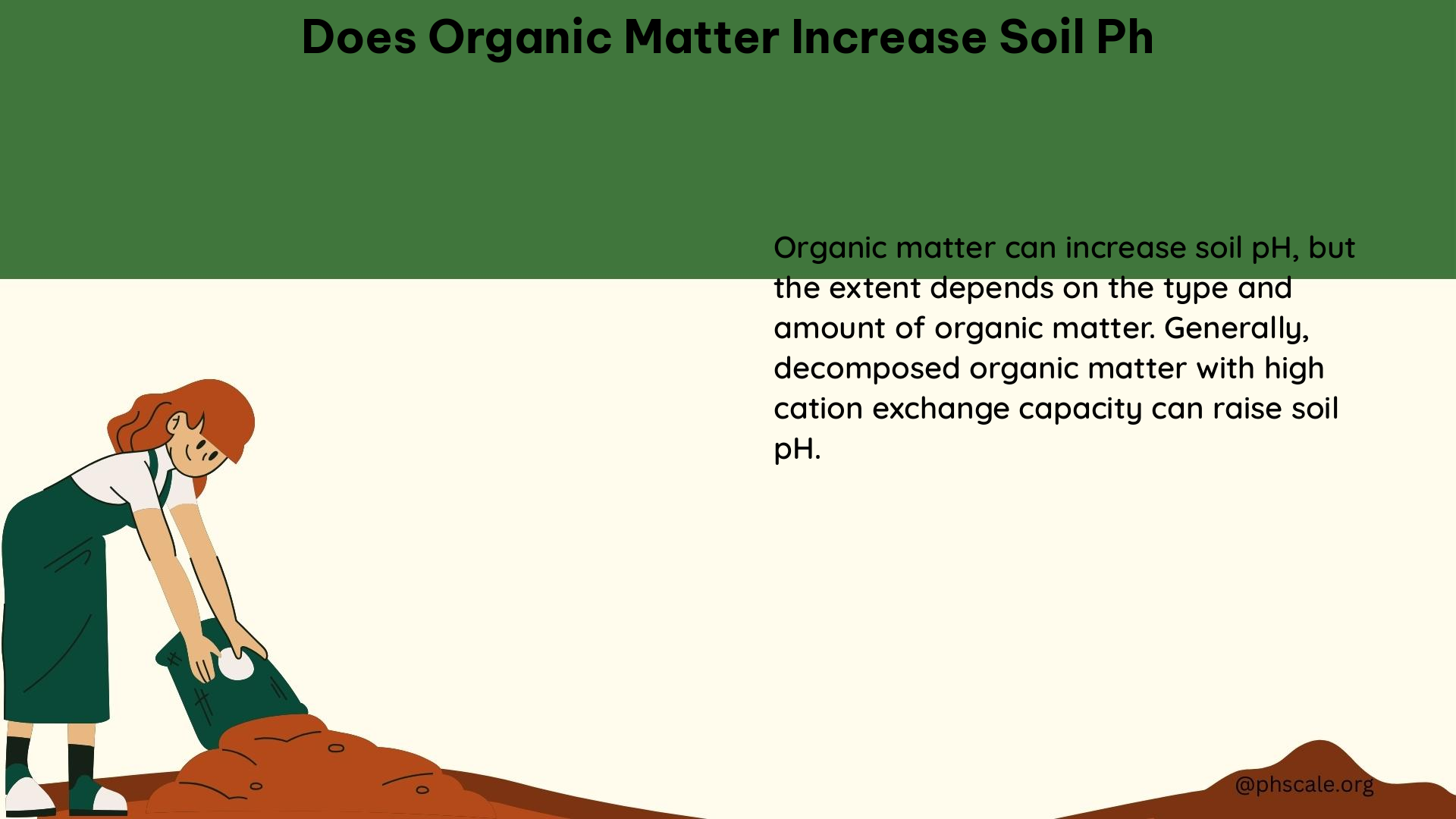The impact of organic matter on soil pH is a complex topic, as it depends on various factors such as the rate of decomposition, the quality and quantity of plant material, the initial soil pH, and the climate. In general, the addition of organic matter can have both short-term and long-term effects on soil pH.
Initial Decay of Organic Matter
When organic matter first begins to decompose, it releases anions and cations. Plant foliage and stems typically contain more anions, so the initial decay over the first few weeks can cause a temporary increase in soil pH. This initial pH increase, especially from high-nitrogen plant residue, can be beneficial for reducing H+, aluminum, or manganese toxicity in the seedling rooting zone, allowing for better seedling establishment.
Microbial Decomposition

As soil microbes further break down the plant material, they release ammonium (mineralization), which temporarily increases pH. However, the ammonium is then converted to nitrate (nitrification), which causes the pH to decrease. If the nitrate is lost through leaching, the pH drops even more. In the long term, the overall microbial decomposition of organic matter tends to decrease soil pH.
Factors Influencing Soil pH
The net effect of organic matter addition on soil pH depends on several factors:
- Rate of Processes: The rate at which decomposition, mineralization, and nitrification occur affects the final pH outcome.
- Quality and Quantity of Plant Material: The type and amount of organic matter added influence the pH change. For example, high-nitrogen plant residue tends to increase pH initially.
- Initial Soil pH: The starting pH of the soil affects how organic matter decomposition impacts pH.
- Nitrogen Fertilizer Source: The type of nitrogen fertilizer used can influence pH levels.
- Weathering of Minerals and Parent Material: The natural mineral composition of the soil affects pH.
- Climate: Temperature and rainfall patterns impact pH levels, with warm and humid environments leading to acidification and dry environments resulting in neutral or alkaline pH.
Long-term Impact
In the long term, the decomposition of organic matter can lead to a decrease in soil pH. However, this decrease can be mitigated by factors such as:
- Clay and Silt Content: Soils with high clay and silt content have higher buffering capacities, making them more resistant to pH changes.
- Organic Matter Content: Soils with high organic matter content are more resistant to pH changes and have higher buffering capacities.
Management Strategies
To manage soil pH effectively, consider the following strategies:
- Liming: Apply lime to raise the pH of acidic soils.
- Nitrogen Fertilizer Management: Apply nitrogen fertilizer in appropriate amounts and at the right time to minimize acidifying effects.
- Crop Rotation and Organic Matter Addition: Incorporate diverse crop rotations and add organic matter to increase soil buffering capacity and improve overall soil health.
In conclusion, the impact of organic matter on soil pH is complex and depends on various factors. While initial decomposition can increase pH, long-term microbial decomposition tends to decrease pH. Understanding these factors and implementing appropriate management strategies can help maintain optimal soil pH levels for plant growth and overall soil health.
References:
– NCBI. (2019). Effects of soil pH and texture on soil carbon and nitrogen in soil profiles under different land uses in Mun River Basin, Northeast Thailand. https://www.ncbi.nlm.nih.gov/pmc/articles/PMC6798867/
– MSU Extension. (n.d.). Soil pH and Organic Matter. https://apps.msuextension.org/publications/pub.html?sku=4449-8
– ResearchGate. (2023). What happens when organic matter is added to the soil and does decomposition make soil acidic? https://www.researchgate.net/post/What_happens_when_organic_matter_is_added_to_the_soil_and_does_decomposition_make_soil_acidic
– UNL CropWatch. (2014). Inherent Factors Affecting Soil pH. https://cropwatch.unl.edu/documents/USDA_NRCS_pH_guide_edit_6_3_14.pdf
– Certified Crop Adviser. (2009). Soil pH and Organic Matter. https://www.certifiedcropadviser.org/files/certifications/certified/education/self-study/exam-pdfs/38.pdf
